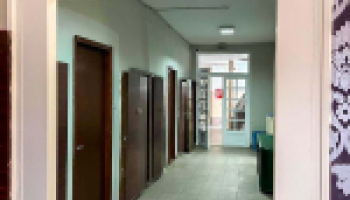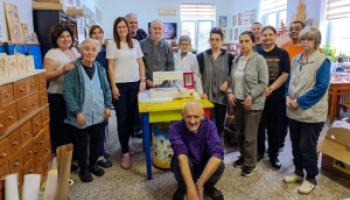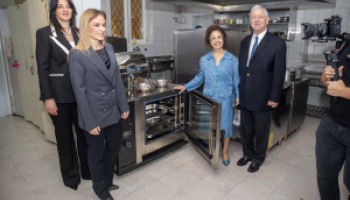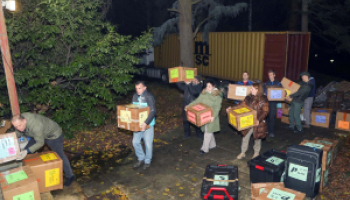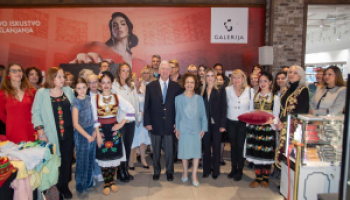- Home
- News & Events
- PROFESSOR DR. AFKSENDIYOS KALANGOS INTERVIEW FOR POLITIKA – HE OPERATED 15000 CHILDREN WITH HEART DEFECTS FOR FREE
PROFESSOR DR. AFKSENDIYOS KALANGOS INTERVIEW FOR POLITIKA – HE OPERATED 15000 CHILDREN WITH HEART DEFECTS FOR FREE
27 Jun 2022
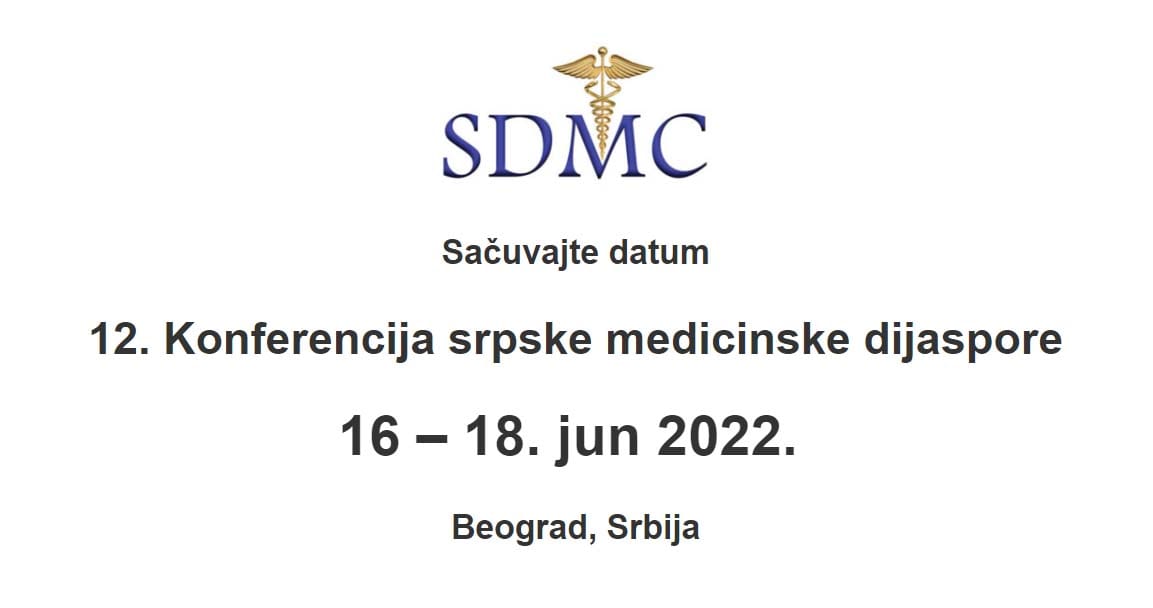
Interview with Prof. Dr. Afksendiyos Kalangos, cardiac surgeon: He operated 15000 children with heart defects for free
At least five Serbian surgeons have been trained at the University Clinic in Geneva, where this specialist works. One of the world’s best pediatric cardiac surgeons, Professor Dr. Afksendiyos Kalangos, has so far operated on a large number of children from Serbia for free, provided training for medical staff so that they can perform complicated medical procedures, and donated a large number of devices for health facilities in our country.
In a conversation with “Politika”, this world-renowned expert, who was decorated with the Sretenje Order of the second degree, emphasizes that the children he operated for free mostly had congenital heart anomalies.
There is an information that you did procedures for 15,000 children from all over the world, as well as a lot of children from Serbia?
Since 2003, I have operated on many children in Serbia or abroad, in Geneva or Athens. It is true that since 1998, the Kalangos Foundation has been involved in 25 countries in promoting the sustainable development of pediatric cardiac surgery by training health professionals and treating children with congenital heart disease. Medical members of the foundation as well as local health teams trained by the foundation since 1998 have so far provided surgical care for more than 15,000 children.
Why did you decide to help Serbia?
I decided to help Serbia after meeting with Their Royal Highnesses Crown Prince Alexander and Crown Princess Katherine Karadjordjevic and seeing how committed they are to helping their country. They are especially focused on improving services in the health and education sectors in Serbia, which are extremely important in the sustainable development of the country.
Many doctors from Serbia were at the training in your hospital in Geneva. What do you think about our doctors?
At least five Serbian surgeons were trained at the University Hospital in Geneva from 2003 to 2015, when I was the director of the Department of Cardiovascular Surgery there. Everyone was serious, talented and eager to learn.
How do you assess the situation in Serbian health care system, what is good and what should be changed?
The health system, especially in developed countries, is currently in a very challenging process of transformation. Thanks to recent technological advances, especially in the field of artificial intelligence, medical care is becoming increasingly focused on patients in an individualized way, in terms of diagnosis, therapeutic modalities and recovery after hospitalization. Serbia needs to adapt its medical system to these rapid changes by improving its basic public health services and technologies. Serbia has well-trained and highly educated medical and other health workers who should be better motivated economically in order to be more prepared for this radical process of transformation. Serbia must establish data banks for each pathology monitoring and allow electronic patient reports to provide useful and truthful information for the application of these data banks.
You mostly do operations for congenital heart defects in children. Has the number of children in the world who have this problem increased in recent years?
The number of congenital heart diseases varies from eight to 12 per 1,000 newborns. The number of babies born with these congenital heart defects, especially severe congenital heart malformations, is declining in high-income countries, where fetal echocardiographies offer parents possibility to terminate pregnancies. On the other hand, changes in the environment that make it more poluted may put pregnant women at higher risk with more toxic agents that can affect their metabolism to develop birth defects not only in terms of intrauterine development of the heart but also other organs.
You designed the “Kalangos Ring” surgical device. Why is it important?
The Kalangos ring is a biodegradable ring that allows children suffering from mitral and tricuspid valve disease to physiologically grow the openings of their valves after surgery. This means that this ring corrects the dilatation of the “valve” opening in a growing child without affecting his growth potential over time.
By Danijela Davidov Kesar


